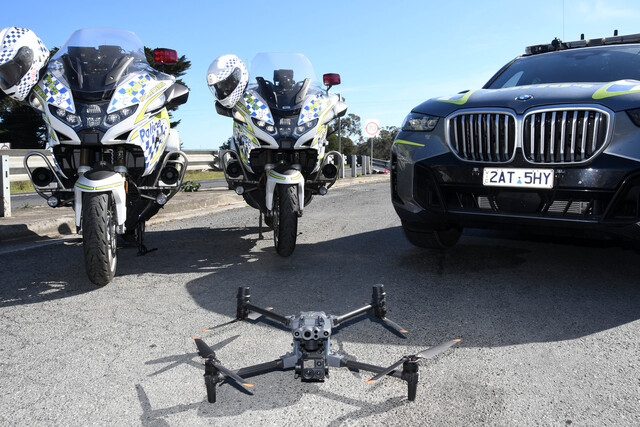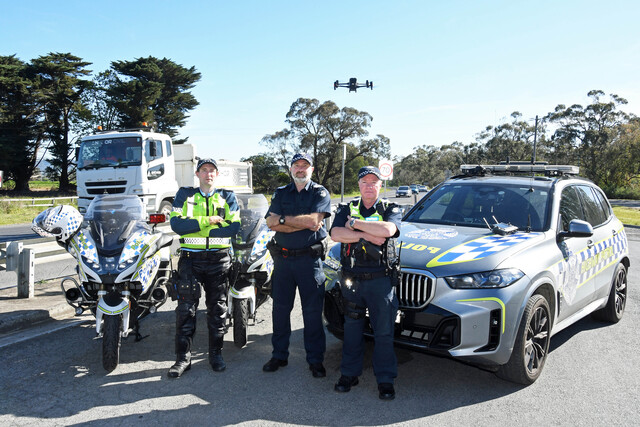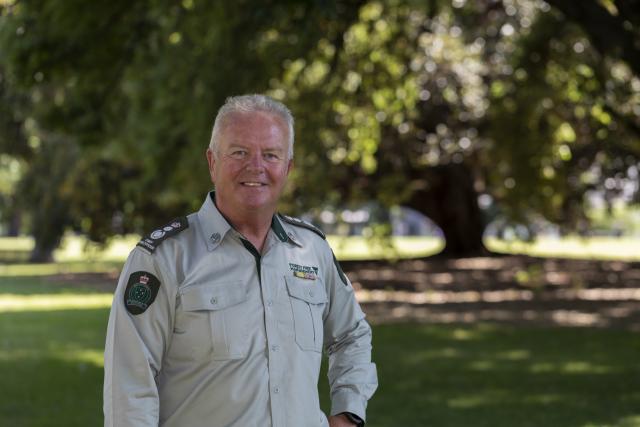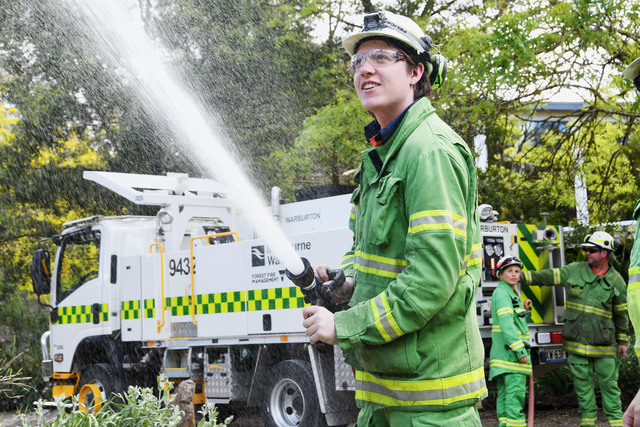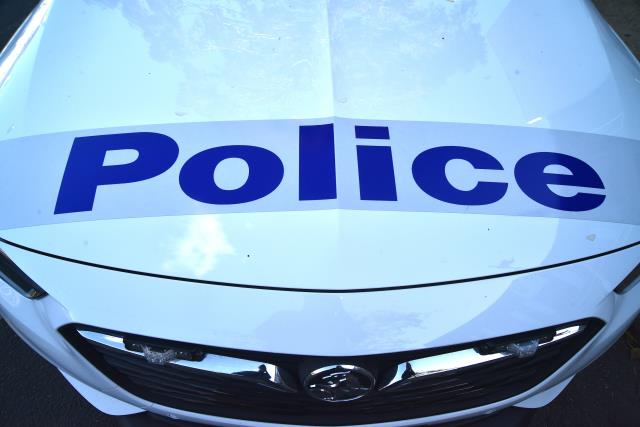Eastern Region Division Two Highway Patrol is increasing its focus on high-risk driving behaviours in the Yarra Ranges through intelligence-led operations, a dedicated road crime team, and expanded educational programs.
Senior Sergeant Brendon de Schwartz, who leads the unit of 37 members and seven sergeants, detailed the initiatives at a recent community forum.
Changing driver behaviour, improving road user safety and educating young drivers has been adopted as the philosophy of the highway patrol unit.
A key tool is the Road Crime Tasking Team (RCTT), which focuses on extreme speeding through red lights, and dangerous activities like hoon meets and burnouts, using intelligence from traffic cameras and other sources.
“We also have a drone operator, and we use the drone in a lot of our specialist operations to try and reduce road trauma,” Snr Sgt de Schwartz said.
One such operation, Operation Aero, dedicates eight members to one of five high-risk feeder roads identified as having a high rate of motorcycle fatalities, especially during the warmer motorbike season from October to March. This is currently operational.
Snr Sgt de Schwartz said specific and targeted operations are coupled with the state based initiatives, focusing on four risky driver behaviours being speed, distraction, seat belts and fatigue.
“Hopefully we’re changing driver behaviour by saturating certain areas at certain times of the day and week,” he said.
“We’re trying to modify and change driver behaviour for everybody. We’re driving towards these intelligence-led rostering and policing, because we get a lot of intelligence that tells us when we are hurting the most.”
Something Snr Sgt de Schwartz said he is pushing within the unit is education of young learner drivers and also their parents “to try and educate our younger drivers and younger learners how to survive on the roads, how to actually be safe and not become a statistic”.
A sergeant from the Yarra Ranges group is now embedded with L2P (learner driver) programs at METEC to teach both learners and their parents how to be safer drivers.
“P-plate drivers, especially male P-plate drivers, are one of the highest risk categories of persons on the road for collisions, fatalities and being injured.
“I want to go into that educational sphere because it is important that we get the safety messaging out to the people that are going to be our future drivers.”
Two area-specific concerns were raised by the community at the forum, which were noted for action.
Following a complaint about heavy vehicle drivers ignoring temporary 40km/h roadwork signs on the Melba Highway and forcing other drivers off the road between Yarra Glen and Yea, police confirmed they would take action and liaise with the Department of Transport and Planning (DoTP).
While Snr Sgt de Schwartz said speed signs and setting of speeds are under the jurisdiction of either DoTP or the council, police can influence change and assessments.
This was most recently actioned on Melba Highway in Yering after the speed limit was reduced from 80km/hour to 70km/hour.
“That is a direct result after we were having significant road trauma out there and as a result of the engagement that I had with the DoTP and our stakeholders.
“There was a whole process around the review of that stretch of road, and ultimately, DoTP deemed it prudent to reduce the speed zone. So we gave a recommendation that we’d like to see a speed restriction changed to actually try and save more lives.
“They reviewed it, and then they acknowledged it, and they put in the appropriate speed restriction zone, which is now 70km.”
The issue of cyclists on mountain roads riding two or three abreast, particularly in the single-carriageway areas near Sassafras, was also raised. It was also connected to the risk on high fire danger days and emergency vehicle response.
Snr Sgt de Schwartz acknowledged the challenge and highway patrol would look to action greater messaging and enforcement to keep cyclists and drivers safe.
Highlighting that it’s everyone’s responsibility to help keep each other safe on the roads, Snr Sgt de Schwartz’s message was that driving is a privilege that can be taken away.
“It’s important as a community we understand that driving is not a right, it’s a privilege, and to keep our privilege and be able to go to work, feed our family, pay our bills, go on a holiday and earn the money that we do, we need to drive safely,” he said.
“Because if we don’t drive safely, then there’s consequences to not doing that, which has compounding effects depending on the circumstances.”

